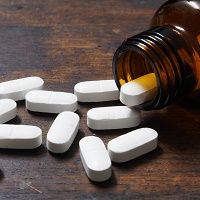Article
Does Treatment with Antidepressants Benefit Esophageal Disorders?
Author(s):
A systematic review recently reported that antidepressants were beneficial for GERD patients – curbing esophageal sensation and reducing functional chest pain.

A systematic review recently reported that antidepressants were beneficial for GERD patients — curbing esophageal sensation and reducing functional chest pain.
A team of researchers conducted a comprehensive database excavation for relevant literature published from the year 1966 to February 2014, primarily focused on determining the “utility of antidepressant therapy for symptoms of esophageal visceral hypersensitivity associated with functional esophageal disorders and GERD.”
The trove of studies included one abstract, 2 case reports, and 15 randomized, placebo-controlled clinical trials that all reported the effects of tricyclic antidepressants (TCAs), selective serotonin reuptake inhibitors, and serotonin-norepinephrine reuptake inhibitors on experimentally induced esophageal sensation and intensity, as well as the frequency of heartburn, chest pain, dysphagia, or globus.
Results showed that esophageal pain thresholds increased by 7% to 37% after antidepressant therapy. Moreover, researchers discovered antidepressants successfully reduced functional chest pain by 18% to 67% andheartburn in GERD patients by 23% to 61%.
Researchers noted, “In summary, the results of the trials included in this systematic review provide modest evidence that both TCAs and SSRIs modulate esophageal sensation and reduce functional chest pain. Limited evidence suggests that SSRIs are beneficial for patients with heartburn, physiological acid exposure, and positive symptom association. Most importantly, this review emphasizes the lack of controlled trials investigating the effect of antidepressants on other esophageal symptomatic disorders.”
In spite of data limitations, experts understand the value and necessity in undertaking further research on antidepressants currently on the market along with non-antidepressant pain modulators and new esophageal pain modulators.
Touting the significance of slow and steady research, Carla Maradey-Romero, MD, and Ronnie Fass, MD, both from the Esophageal and Swallowing Center and MetroHealth Medical Center at Case Western Reserve University in Cleveland, concluded, “Antidepressants are likely to remain the mainstay of treatment of functional esophageal disorders and esophageal disorders with a functional component despite limited evidence from well-designed clinical trials for their efficacy. Lack of evidence owing to a paucity of clinical trials may not be interpreted as a lack of efficacy of these drugs.”





